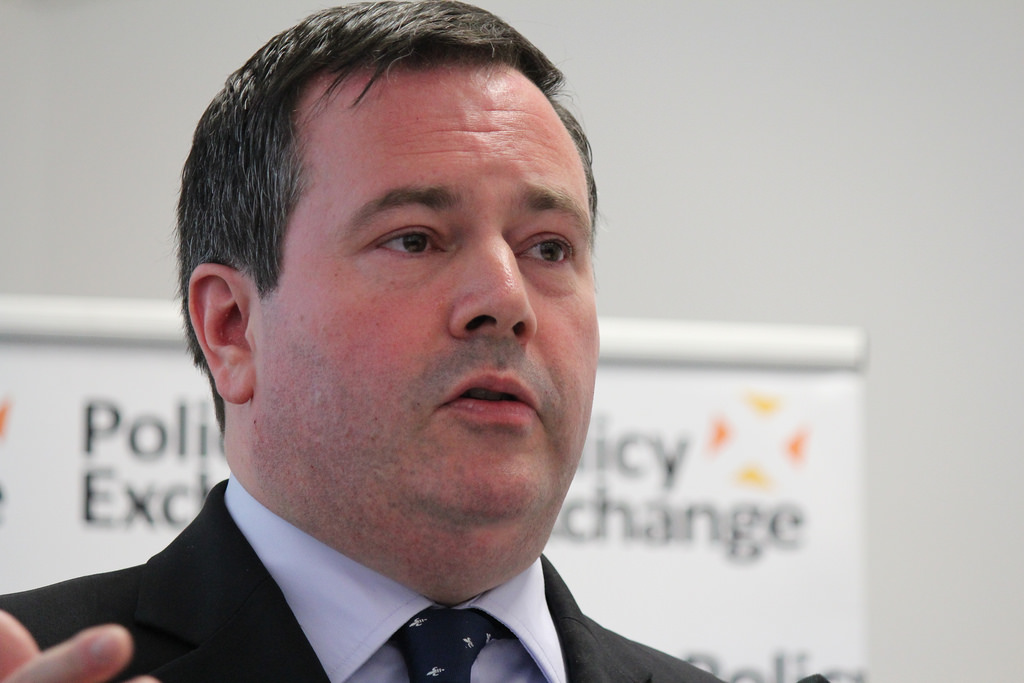
Jason Kenney’s long and treacherous road to the premier’s office
By Fabian Mayer, July 19 2016 —
Jason Kenney said uniting Alberta’s two right of centre parties would be a “walk in the park.” But two weeks in, Kenney’s bid to become Alberta’s next premier at the helm of a united right is already looking more like walking a tightrope.
To unite the right, Kenney must first win the Progressive Conservative leadership contest next spring and then convince the Wildrose that the two parties would be better off under one roof.
This would be difficult enough if he could take on each task independently. This was Stephen Harper’s approach to uniting the right federally. He waited until after securing the Canadian Alliance leadership before pushing to merge with the federal PCs.
Declaring from the outset that his goal is a single right-wing party complicates Kenney’s task enormously. It essentially means he has to accomplish the two steps simultaneously. In some ways, he is running for the leadership of both parties at the same time.
While the Wildrose and PCs may share the broad label of “conservative,” the parties’ members are very different. Wildrose supporters are mostly rural, generally socially conservative and tend to distrust “big government.” PC supporters are mostly urban, socially more progressive and were quite comfortable with decades under a big spending government.
Add to that a rivalry stoked by former Wildrose leader Danielle Smith jumping ship — taking eight Wildrose MLAs with her — to the PCs in 2014 and the enmity between the parties should not be underestimated.
Kenney has to impress both parties without alienating the other. His first task is to convince PC members that any resulting united conservative party will incorporate their party’s ideas — not just their colour scheme.
Kenney has to do this while at the same time making overtures to Wildrose supporters, the most blatant so far being a “grassroots guarantee” that his effort to unite the right would incorporate the grassroots. But if he goes overboard and starts touting his social conservative bona fides to impress Wildrose supporters he risks alienating a good deal of the PC membership. If those members fear that a united conservative party would simply be the Wildrose version 2.0, Kenney could very well falter at the first hurdle.
Of course the inverse is also possible. If the PC leadership contest forces Kenney to appeal to the party’s more progressive wing — for example, by shying away from or backtracking when his opponents inevitably press him on social issues — the notoriously intransigent Wildrose base could turn on him. Keep in mind that this is the party where Danielle Smith was too much of a lefty. In this scenario, Kenney would be left without a willing partner to unite with. In a nightmare scenario for Kenney, he would be leading a party in which he is not ideologically at home and with few prospects of electoral success. Perhaps mercifully, he wouldn’t last long.
There has been much talk of Kenney’s ability to win the PC leadership by flooding the contest with his supporters, with many likely coming from the Wildrose. This strategy would allow Kenney to pander all he wants to Alberta’s far right. But a hostile takeover of their party by rivals is something PC members and supporters would not soon forget. Those who just had their party wrested away from them seem unlikely to fall in line and support a new party they had no say in creating.
The Liberals, Alberta Party and NDP would make strong pitches to those disaffected by the process and welcome them with open arms. The result might be a united right that appeals exclusively to Wildrose and the very right of the PCs — creating a party with a hard ceiling of support similar to that experienced by the federal Conservatives. However, with the anti-conservative vote less split in Alberta than it was federally, the path to victory available to Harper is not currently available to Kenney.
In this scenario Kenney could potentially unite the right but would have trouble defeating an NDP bolstered by new voters from progressive wing of the PCs and an inevitable “anyone but Kenney” movement. How long the high profile former federal minister would be willing to languish in Alberta’s opposition is anybody’s guess.
Kenney’s path to the premier’s office is fraught with potential for failure. If he can somehow pull off this balancing act it will be an impressive victory, contrasting sharply with the ineptitude of Alberta’s right in recent years. If he falters — like Ed Stelmach, Alison Redford, Danielle Smith and Jim Prentice before him — his political career will end in humiliation at the hands of Alberta’s fickle electorate. If that happens it might be time to start a support group.
